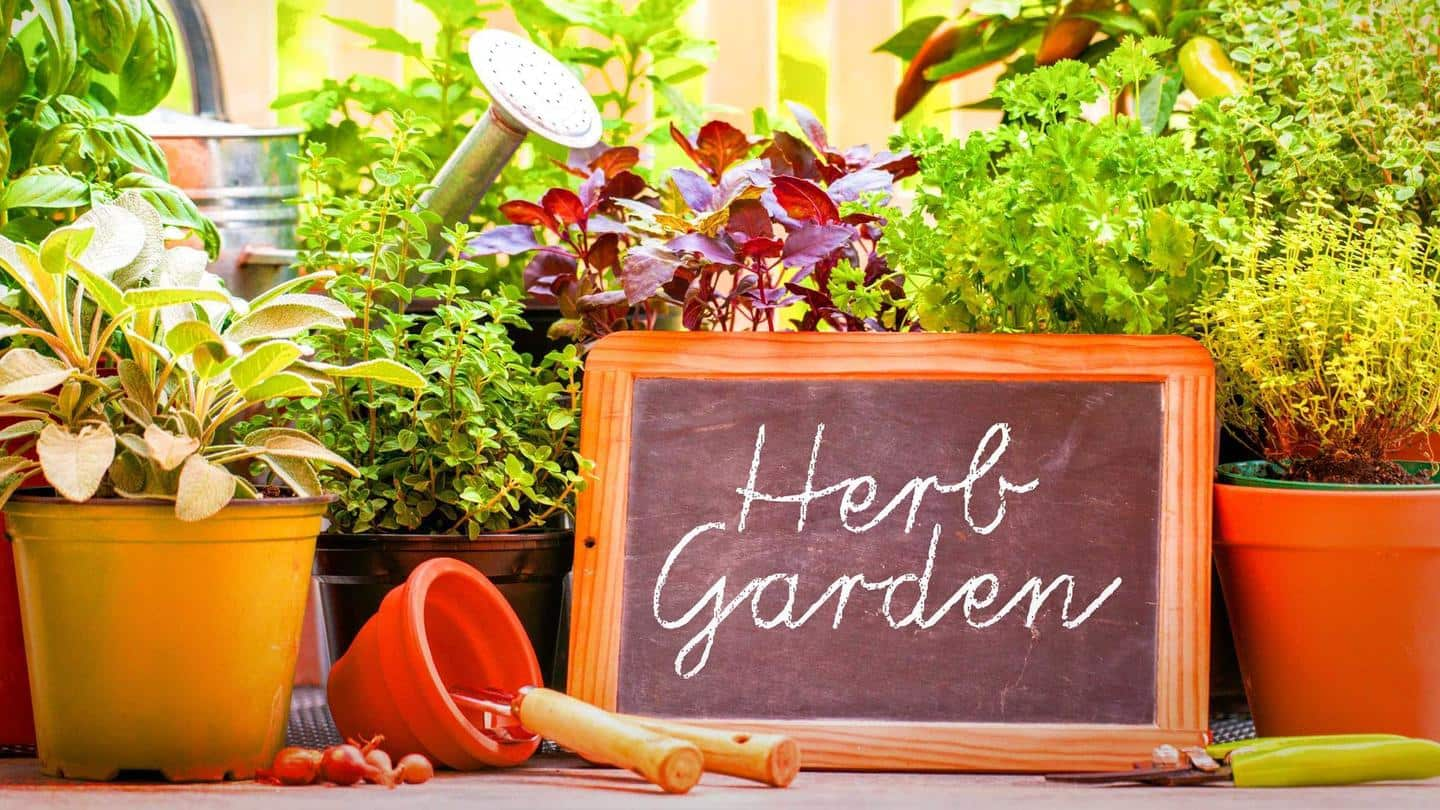
A guide to growing your own herb garden
What's the story
What can be better than using homegrown produce to prepare your wonderful dishes?
If you are looking to start with something small, then instead of a vegetable patch, go with a herb garden. It is extremely easy to start one and easy to maintain.
From rosemary to some fresh basil and parsley, growing your own herbs is extremely satisfying as well as rewarding.
Information
What kind of herbs can you grow?
You can select the herbs according to your choice and preference. Start with basic cooking herbs like rosemary, mint, coriander, sage, and basil which are regularly used in kitchens. You can also grow fragrant herbs like lavender for aromatherapy purposes.
Location
Choose the perfect location
Most of the herbs require well-drained soil and sunlight to grow.
Make sure to select a spot in your garden that receives at least six or more hours of direct sunlight every day.
If you have a place just behind your kitchen, or near the kitchen window, then nothing like it. This way you can pluck the herbs as and when you need them.
Preparation
Prepare the soil well
After you have decided on the perfect spot for your herb garden, the next step is to prepare the soil.
We recommend you add lots of compost into your soil to provide nutrients to your herbs while they are growing.
Avoid using composted manures in the soil as they are nitrogen-heavy and will reduce the flavor of your herbs when they will grow.
Choice
Choose the right pots
Choosing the right pots is extremely essential to let your herbs grow the right way.
You can choose a clay, metal, wood, or resin pot according to your requirement and preference. Medium sized pots work best for herbs.
But make sure that the bottom of the planter or pot has holes in it to let the excess water escape.
Planting
Buy starter plants instead of seeds
We recommend you use starter plants instead of seeds to let your herbs grow quickly and conveniently. Starter plants are usually several weeks old and increase the chances of successful harvesting.
It's extremely important to take constant care of your herbs to let them grow and flourish. Avoid overwatering and ensure that your herbs get at least 2 inches of water every week.
Harvesting
Harvest your herbs
After your herb garden is ready, it's important to cut your herbs often as it encourages growth.
We recommend you harvest your herbs early in the morning as the essential oils are ample. Pruning should be done from the top, so pluck leaves from near the top of the stem.
Make sure not to remove more than a third of the volume.